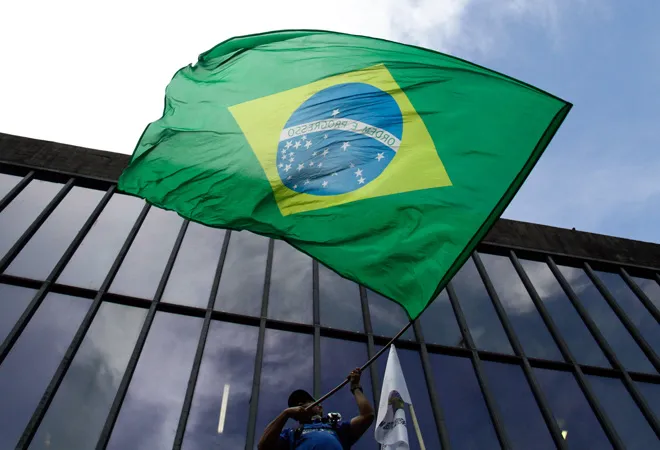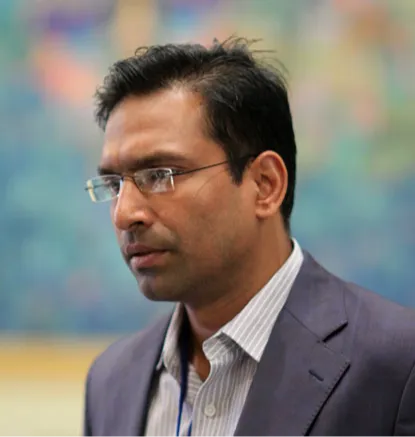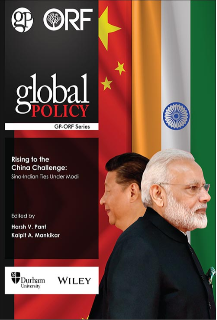
In stunning and tightly fought elections, Brazilian voters on 30 October
ousted President Jair Bolsonaro and elected a former two-term president, Luiz Inacio Lula da Silva or ‘Lula’, as he is popularly known among the legions of his supporters. The election that was marred by unbelievable acrimonies between the supporters of two candidates of sharply opposite ideologies and identities was one of the closest elections in decades. The gap between the winner and loser was less than 2 percent.
While many pollsters believed that Lula would handily win the race after Bolsonaro received 43 percent (against 48 percent by Lula) in the first round, the incumbent ran an aggressive and spirited campaign to almost clinch the race in the second round. Notwithstanding the close margin, the vote is a strong rebuke to Bolsonaro’s four years’
divisive politics marked by populism and gross mismanagement during the pandemic, which left as many as 700,000 Brazilians dead. However, the election was all about Lula and his astonishing comeback after spending 580 days in prison in a
controversial trial over bribery charges. For Bolsonaro, he is the first incumbent president to lose a re-election in 34 years of Brazilian democracy.
The election that was marred by unbelievable acrimonies between the supporters of two candidates of sharply opposite ideologies and identities was one of the closest elections in decades.
A Polarised Election
The 2022 election was probably Brazil’s most polarised election in decades, a war between two completely different world views. While Bolsonaro represented a coalition of conservatives, ultra-nationalists, and pro-market camps; Lula’s Worker’s Party, with its strong leftist base, advocated for socialist, pro-poor, and
sustainable development. While Bolsonaro’s conservative camp strongly pitched for greater privatisation and deregulation, Lula’s Workers’ Party sought the mandate on economic redistribution, food, and housing for the poor. However, the divide was not limited to political and economic worldviews alone. South America’s biggest election saw the entire Brazilian society splitting into
two-camps: Bolsonaristas vs Lulistas. While Bolsonaristas called Lula a corrupt leftist thief, Lulistas named Bolsonaro a xenophobic and an authoritarian extremist. In short, this was an election that bitterly pitted
Brazilians against Brazilians like never before.
Beyond the ideological divide, this was the most acrimonious campaign ever. For instance, following Donald Trump’s script, Bolsonaro and his millions of hardcore supporters called into question the media, the election process particularly its electronic voting system, and the electoral management by the Superior Electoral Court as well as made threats to use the military. Like Trump, Bolsonaro openly
threatened not to accept the electoral verdict. Even after defeat, he seemed to have stuck to his script. Although he took more than a day to
allow transition, he has refused to concede defeat to Lula yet.
Tough road ahead
While Lula’s victory may be razor-thin, it is a significant victory in terms of expanding the Pink Tide (some analysts call it the
Pink Tide 2.0) in Latin America. For the first time, the six most populous and economically significant countries (Mexico, Peru, Chile, Argentina, Colombia, and now Brazil) in the region will have presidents with leftist agendas. This is in contrast to the growing trend of right-wing, populist governments in Europe and the West. Lula’s victory is seen by many as a victory of
Green Leftism in Latin America and his strong statement on reversing the damage to the Amazon rainforest is a testimony to that.
Following Donald Trump’s script, Bolsonaro and his millions of hardcore supporters called into question the media, the election process particularly its electronic voting system, and the electoral management by the Superior Electoral Court as well as made threats to use the military.
Yet, fulfilling many of these agendas will not be so easy. The magnitude of the challenges for Lula’s new term are huge. He faces an ever-slowing economy, which was further affected by the pandemic and global economic slowdown. His earlier stints (2003-2010) that saw a record 25 million people being lifted out of grinding poverty were largely funded by the commodity boom and high global economic growth. He is inheriting an economy which is expected to grow less than 1 percent (0.6 percent as per the forecast by the
Organisation for Economic Co-operation and Development).
Second, he is going to govern a much different Brazil. During his previous stints, between 2003 and 2010, the Brazilian society and polity were less divided, thus helping him to form broader social coalitions to support many of his path-breaking social policies such as Bosla Familia (conditional cash transfer program). However, since the astonishing rise of far-right groups under Bolsonaro, nearly half of Brazilian society is very hostile and inimically opposed to everything that Lula and his pro-poor Workers Party stand for. So much so, even Bolsonaro’s anti-LGBT and anti-climate policies including destruction of the Amazon’s rainforest were endorsed by his core conservative supporters. “
Beef, Bible and Bullets” have emerged as the key conservative agenda in the last few years and enjoys strong support within a sizeable section of the Brazilian population. In fact, Bolsonaro’s four-year stint was marked by
major reversal and under-funding of many of the core social policies initiated under Lula. Thus, the third stint would significantly test Lula’s skills as a coalition builder and unifier.
However, since the astonishing rise of far-right groups under Bolsonaro, nearly half of Brazilian society is very hostile and inimically opposed to everything that Lula and his pro-poor Workers Party stand for.
Finally, the most serious challenge for Lula would come from Bolsonaro and his conservative coalitions. He might have lost the presidency, but his conservative coalition has won in several states and dominates in the Congress. Thus, Bolsonaro’s hardcore supporters within the government and outside would fiercely oppose any expansion of pro-poor leftist policies, and any eventual overturn of conservative agendas. One might witness the kind of vicious opposition faced by Lula’s protégé and President Dilma Rousseff leading to her unceremonious impeachment in 2016.
However, Lula is no Dilma Rousseff. Those who have been tracking this metal worker’s astonishing political rise from the back of grinding poverty and structural disadvantages know well his ability to build bridges across coalitions. Not only does he leads multiple workers’ coalitions and left-centric organisations, during his previous stints, he was able to form broad-based coalitions, including the middle class, which supported his transformative and pro-poor social policies. Another strength that Lula can derive this time is the existence of major Left governments in the region, which can come handy in terms of ideological support and economic cooperation. However, it is still very early to see how things would unfold in Brazil and much of Latin America. Nonetheless, the Brazilian electoral verdict offers a significant check to an accelerated right-wing turn for democracies and rising authoritarianism across all regions of the world.
The views expressed above belong to the author(s). ORF research and analyses now available on Telegram! Click here to access our curated content — blogs, longforms and interviews.



 In stunning and tightly fought elections, Brazilian voters on 30 October
In stunning and tightly fought elections, Brazilian voters on 30 October  PREV
PREV


